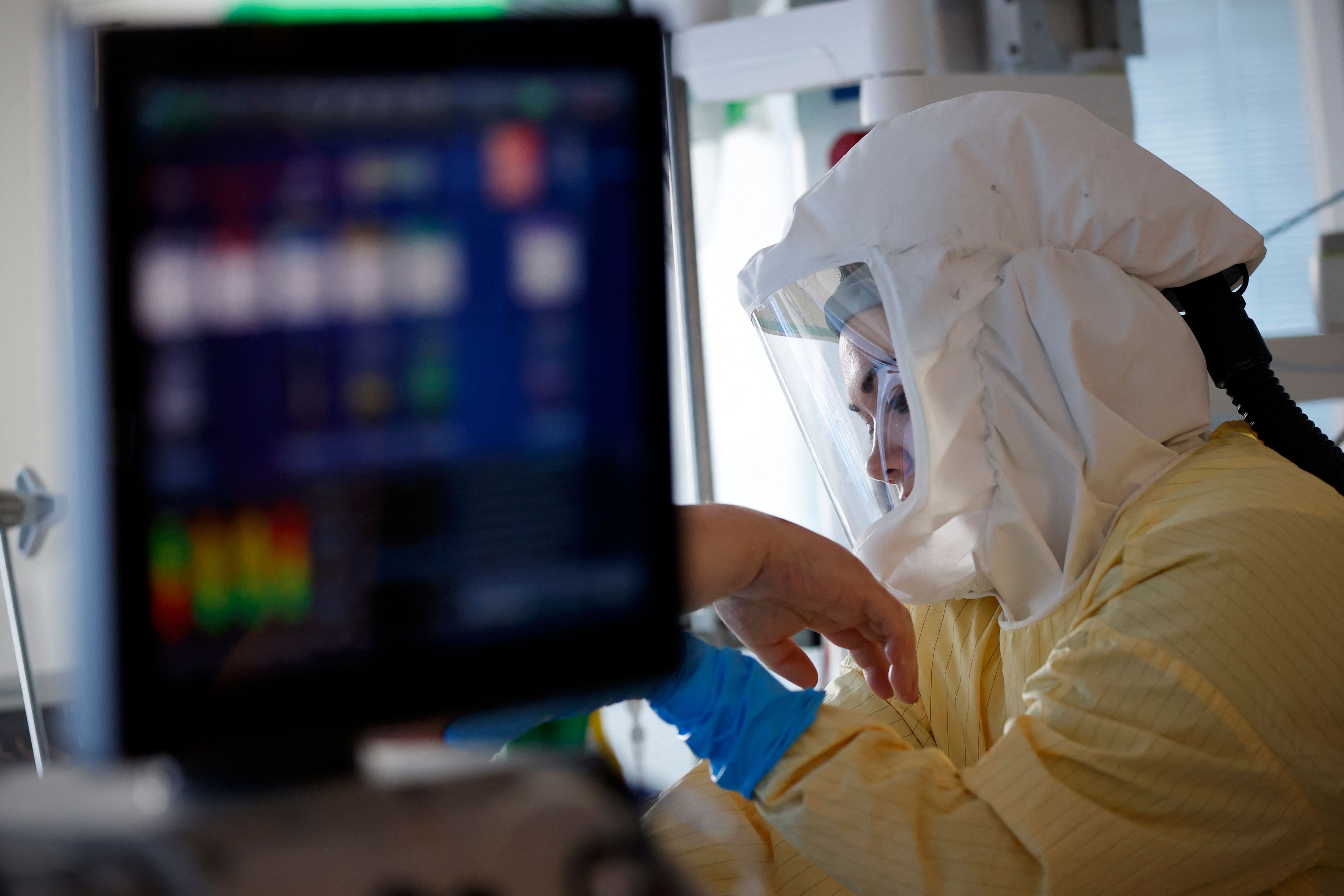Rising hospital admissions tipping already delicate balance, NHS chief says
‘No one has the physical or mental resilience for this wave,’ hospitals boss says

Rising Covid cases and hospital admissions are “tipping an already delicate balance” within the health service, an NHS chief has said.
Sarah-Jane Marsh, the chief executive of Birmingham Women’s and Children’s Hospital and NHS England’s national lead for maternity and children and young people, said the number of patients in general and ITU beds in Birmingham meant the city’s hospitals needed to up its Covid response.
The number of people requiring hospital treatment for Covid in the Midlands increased over the past week, with daily admissions almost doubling from 44 on 28 June to 81 on 4 July.
Some 461 Covid patients were admitted to hospitals across England on 7 July, up from 295 on 1 July.
Ms Marsh said: “I understand the sentiment that hospital admissions are relatively small, so the NHS should ‘just cope’, but health care systems are finely tuned to meet the patterns of need they have historically experienced, and these additional patients are tipping an already delicate balance.”
She added: “No one has the physical or mental resilience for this wave, but it’s here, and so we must find some inner strength to start again.”
Earlier on Saturday, medical leaders said the NHS was under “unprecedented pressure”, with hospitals experiencing what “is like the worst of a bad winter in July”.
The Academy of Medical Royal Colleges (AoMRC) also said routine care continued to be postponed because of the number of health service staff having to self-isolate amid rising caseloads.
“There is little doubt that things will get worse before they get better,” the academy said in a statement.
The warning came after NHS staff told The Independent that emergency services were in “borderline meltdown” and braced for demand to soar.
Patients have been forced to queue for up to an hour outside one A&E department, with some waiting up to 20 hours for a bed earlier this week.
And rising pressure has been piled on England’s NHS 111 system after the Covid Clinical Assessment Service (CCAS), a dedicated Covid telephone assessment service, was scrapped as cases began rising.
An NHS spokesperson said: “The NHS in England remains at a level three incident, the second-highest state of alert, with staff working hard to manage demand as patients come forward for treatment.
“NHS capacity is flexed according to patient need, and while 111 calls relating to Covid have reduced significantly from when the CCAS was first introduced, additional 111 capacity can be stood up quickly if required.
“All NHS 111 call handlers are able to advise patients on the best way to proceed if they have symptoms of Covid, so if you need urgent care, go to NHS 111 Online or call 111 so that the best option for you can be determined.”
Boris Johnson is expected on Monday to confirm plans for the easing of restrictions in England on 19 July. But he is reportedly set to sound a note of caution amid “jitters” within Downing Street over the removal of all restrictions as infections surge.
Helen Stokes-Lampard, the chair of the AoMRC, said she has been “profoundly concerned” about the idea of removing all measures and that returning to normal in July would be “dangerous”.
“We all want to make sure the public is fully aware that this pandemic is far from over,” she told BBC Radio 4’s Today programme on Saturday.
“When the 19th comes, what we need is a responsible approach and a very cautious approach to relaxing restrictions.”
Later on Saturday, Dr Mike Tildesley, a member of the Scientific Pandemic Influenza Group on Modelling, said high levels of vaccination could “challenge the virus” to mutate into variants against which the jab is less effective.
“There is a risk with 19 July in terms of exposing more people to infection as a result of further reopening,” he told Times Radio.
He warned: “Of course, the more cases you have, particularly with high levels of vaccine protection, that does then kind of challenge the virus a little bit more and gives more potential for it to mutate into a form where the vaccines are less effective.”
A further 32,367 Covid-19 cases and 34 deaths were reported across the UK on Saturday.
The Independent has approached the Department of Health and Social Care for comment.
Join our commenting forum
Join thought-provoking conversations, follow other Independent readers and see their replies
Comments
Bookmark popover
Removed from bookmarks